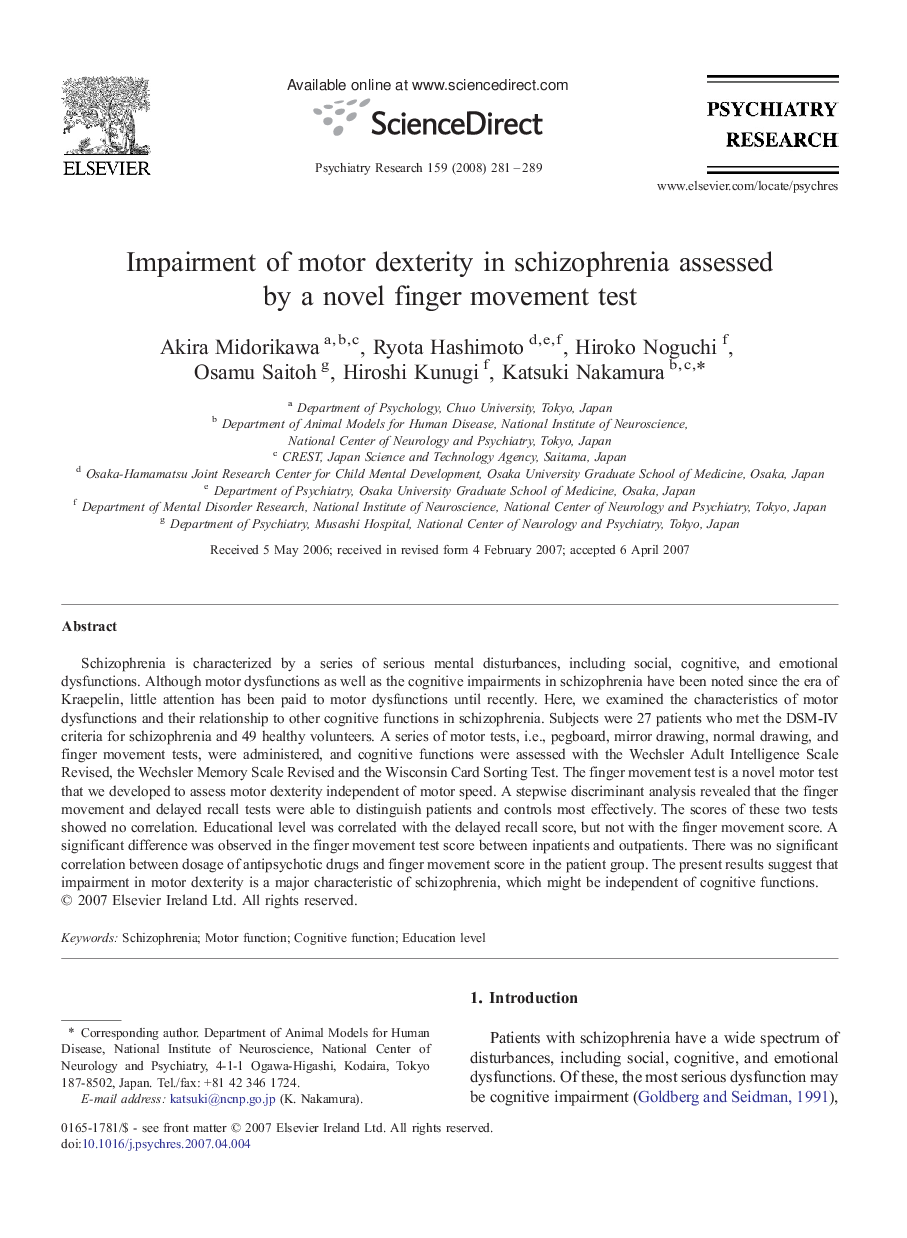| Article ID | Journal | Published Year | Pages | File Type |
|---|---|---|---|---|
| 333998 | Psychiatry Research | 2008 | 9 Pages |
Schizophrenia is characterized by a series of serious mental disturbances, including social, cognitive, and emotional dysfunctions. Although motor dysfunctions as well as the cognitive impairments in schizophrenia have been noted since the era of Kraepelin, little attention has been paid to motor dysfunctions until recently. Here, we examined the characteristics of motor dysfunctions and their relationship to other cognitive functions in schizophrenia. Subjects were 27 patients who met the DSM-IV criteria for schizophrenia and 49 healthy volunteers. A series of motor tests, i.e., pegboard, mirror drawing, normal drawing, and finger movement tests, were administered, and cognitive functions were assessed with the Wechsler Adult Intelligence Scale Revised, the Wechsler Memory Scale Revised and the Wisconsin Card Sorting Test. The finger movement test is a novel motor test that we developed to assess motor dexterity independent of motor speed. A stepwise discriminant analysis revealed that the finger movement and delayed recall tests were able to distinguish patients and controls most effectively. The scores of these two tests showed no correlation. Educational level was correlated with the delayed recall score, but not with the finger movement score. A significant difference was observed in the finger movement test score between inpatients and outpatients. There was no significant correlation between dosage of antipsychotic drugs and finger movement score in the patient group. The present results suggest that impairment in motor dexterity is a major characteristic of schizophrenia, which might be independent of cognitive functions.
